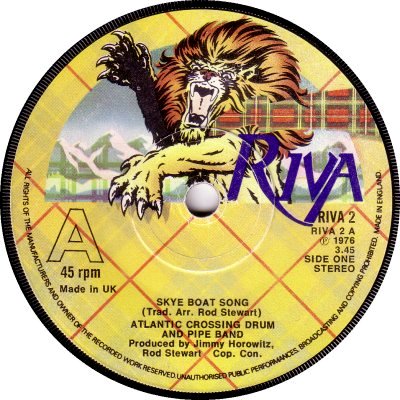
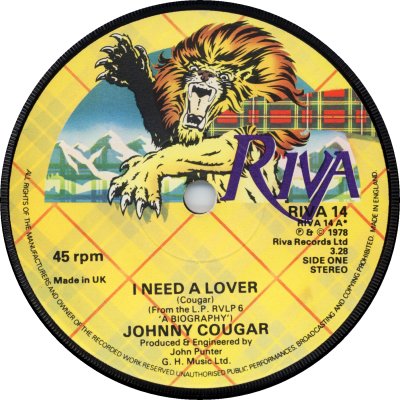
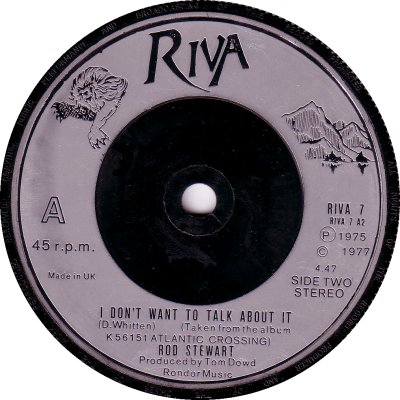
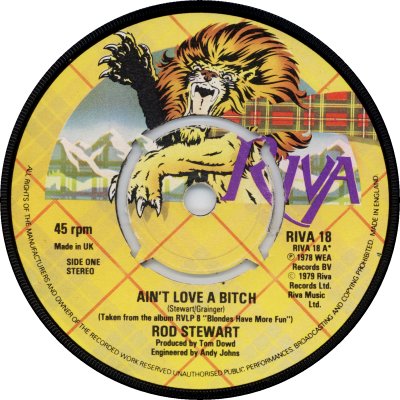
Riva was one of the labels which were owned by Rod Stewart's manager Billy Gaff, GM and its offshoot Cherub (q.v. both) being the others. The first hint of the new label came in the 'Gossip' column of 'Music Week' of the 7th of June 1975, though neither of the forecasts made there - that Rod Stewart's purchase of GM Records could be expected, and that company's name would be changed to Tartan - came about. Tartan Records Ltd. was indeed set up by Gaff and the managing director of GM, Mike Gill, but only as a marketing company. 'MW' of the 9th of August, which broke the news that Tartan had been formed, said that it would be seeing to the promotion in the UK of Stewart's first album for WEA, 'Atlantic Crossing'. The article also scotched industry rumours that Tartan was to be a label and that it would absorb GM; Gill was quoted as saying that the formation of Tartan would not affect GM in any way. A couple of months later, however, 'MW' reported that a new label had been formed; it was called Riva Records, and it was a wholly-owned subsidiary of Tartan. According to the report it was originally intended to be called 'Rampant' - which would explain the picture of the lion on the label - but legal problems had led to a change of plan. There was already a 'Rampant' label in existence, and indeed a 'Tartan' one, so there may have been a potential clash there. Directors of the new company were named as Gaff, Gill (managing director) and Milton Marks. Despite Gill's confidence that Riva's arrival would not affect GM, GM appears to have been put on the back burner while Riva was being established: it issued only one single in 1976, but was revived at the start of 1977.
Stewart was Riva's hottest property; indeed for a couple of years he was practically the only one. The company did eventually start signing new acts, including a band called Windows and John Cougar Mellencamp. It didn't receive many mentions in 'Music Week': the issue of the 4th of September 1976 listed it as being among the Gaff group of companies along with GM Records, Gaff Management and GH Music; while that of the 5th of November 1977 noted the fact that its deal with WEA had been renewed. 'MW' of the 17th of June revealed that Mike Gill had resigned but the dispute must have been resolved, as the issue of the 29th of July said that he had rejoined the company. Stewart left in 1982, after numerous Chart albums and singles. In the wake of his departure John Cougar (Mellencamp) took Riva into the Charts on a few occasions - he was particularly popular in Canada - but despite those successes it looks as though much of the wind had gone out of the company's sails, and it doesn't appear to have lasted past 1987.
The design of the Riva label remained basically the same throughout the '70s, though there were minor changes: a hollow 'A' on the left side of the label (1) disappeared in the autumn of 1979; some re-pressings of earlier singles also lack it, as in the example shown (2). Some popular singles had injection moulded labels (3), which were the result of contract pressings by Phonodisc. Contract pressing was also done by other firms, such as Decca (4) - Riva singles tended to have solid centres, so it is worth checking the matrix numbers of any perforated ones to see if they are 'outsiders'. As can be seen, the perforations didn't do much for the design. Distribution was by CBS initially and by WEA thereafter, and pressing was done by the same companies - CBS handled the manufacture of WEA products for much of the decade, until the company obtained its own facilities. The discography below only covers the 1970s.
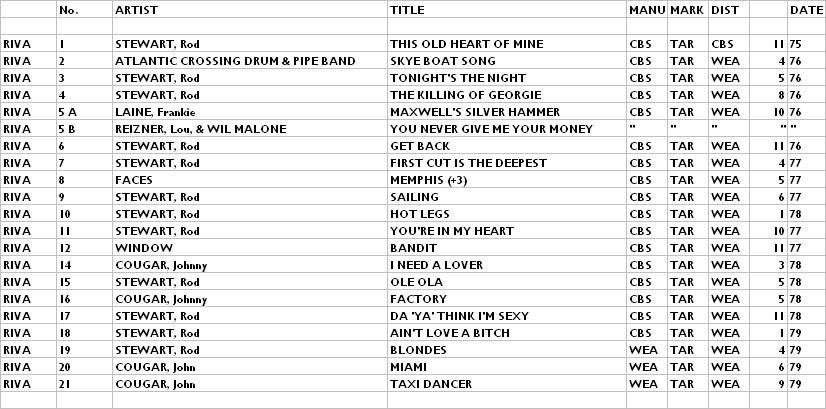


Copyright 2006 Robert Lyons.

